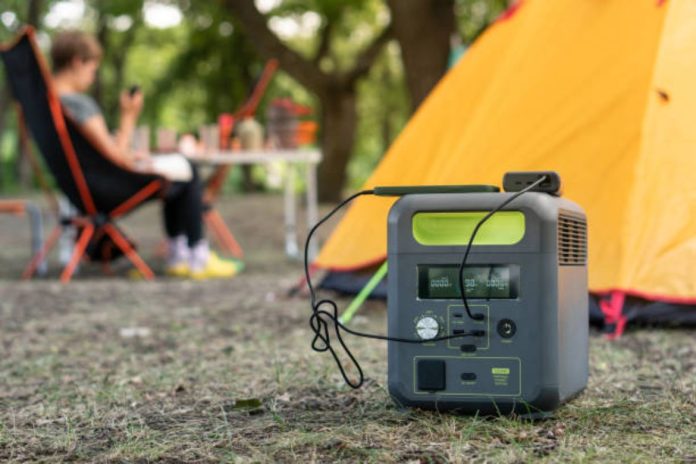Lithium Iron Phosphate (LiFePO4) batteries have gained popularity due to their superior lifespan, safety, and efficiency compared to traditional lead-acid and lithium-ion batteries. Whether you’re looking for a power source for solar energy storage, RVs, boats, or other applications, choosing the right LiFePO4 battery is crucial. This guide will help you understand key factors to consider when selecting the best LiFePO4 batteries for your needs.
Understanding LiFePO4 Batteries
Before diving into the selection process, it’s essential to understand why LiFePO4 batteries stand out:
- Long Lifespan: They typically last 2,000 to 5,000 cycles, significantly longer than lead-acid alternatives.
- Safety: These batteries are inherently stable and resistant to overheating, reducing the risk of fire or explosion.
- Efficiency: LiFePO4 batteries have a high energy density and maintain a consistent voltage level throughout discharge cycles.
- Lightweight: They are much lighter than lead-acid batteries, making them ideal for portable applications.
Key Factors to Consider
1. Battery Capacity and Voltage
Capacity is measured in ampere-hours (Ah), and voltage determines compatibility with your devices. Choose a battery that meets your energy requirements:
- 12V, 24V, or 48V options are common for different applications.
- Higher Ah ratings provide longer runtime.
- Match the battery voltage with your system requirements to ensure efficiency.
2. Battery Management System (BMS)
A Battery Management System (BMS) is essential for protecting your LiFePO4 battery from overcharging, over-discharging, and temperature extremes. A good BMS will:
- Prevent overheating and short circuits.
- Balance cell voltage to prolong battery life.
- Enhance safety and performance.
3. Cycle Life and Warranty
The lifespan of a LiFePO4 battery varies based on usage and quality. Consider batteries with at least 2,000 charge cycles, as they will last for years. Look for brands offering warranties of 5 to 10 years for added reliability.
4. Bluetooth Functionality for Smart Monitoring
Modern LiFePO4 batteries come equipped with Bluetooth functionality, allowing users to monitor real-time performance via a smartphone app. This feature helps:
- Track charge and discharge cycles.
- Monitor voltage, temperature, and overall battery health.
- Receive alerts about potential issues.
5. Charging Efficiency and Compatibility
- Choose a battery that supports fast charging to reduce downtime.
- Ensure compatibility with your existing charger or solar setup.
- Look for models that support MPPT or PWM solar charge controllers if using solar energy.
6. Weight and Size Considerations
LiFePO4 batteries are lighter than lead-acid alternatives, but sizes can vary. If portability is a concern, opt for a compact and lightweight model that fits your installation area.
7. Environmental Conditions and Durability
Some batteries perform better in extreme conditions. If you plan to use them in harsh environments, choose a battery with:
- Water and dust resistance (IP65 or higher rating).
- Wide operating temperature range.
- Shock and vibration resistance for off-road or marine applications.
8. Brand Reputation and Customer Reviews
Trusted brands often offer better quality and service. Check for customer reviews, warranties, and the manufacturer’s reputation in the industry before making a purchase.
Recommended Applications for LiFePO4 Batteries
1. Solar Energy Storage
LiFePO4 batteries are widely used in solar energy systems due to their efficiency and longevity. They store excess solar power and provide energy when sunlight is unavailable.
2. RVs and Campers
If you’re an outdoor enthusiast, upgrading to a LiFePO4 battery will significantly improve your power supply. They last longer, charge faster, and require less maintenance compared to lead-acid options.
3. Marine and Boating
Many boat owners switch to LiFePO4 batteries due to their resistance to moisture, high energy density, and longer cycle life. They power trolling motors, navigation equipment, and other onboard electronics.
4. Electric Vehicles (EVs) and Golf Carts
Electric vehicles and golf carts benefit from LiFePO4 batteries due to their lightweight design and extended range per charge. These batteries offer high discharge rates without losing efficiency.
5. Backup Power and UPS Systems
For home and business applications, LiFePO4 batteries provide reliable uninterrupted power supply (UPS) backup solutions, ensuring devices and appliances keep running during outages.
Conclusion
Choosing the best LiFePO4 battery depends on several factors, including capacity, voltage, BMS, cycle life, and Bluetooth functionality for smart monitoring. Whether you’re using it for solar energy storage, RVs, boats, or backup power, selecting a high-quality battery ensures optimal performance, safety, and longevity. By considering these essential factors, you can invest in a reliable and efficient LiFePO4 battery that meets your energy needs for years to come.









